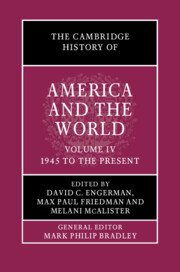The Lausanne Congress on World Evangelization in 1974 was the largest global gathering of evangelical Christians in the latter half of the twentieth century. Lausanne was significant, in part because of the struggle between two sets of evangelical leaders: those, led by the US, who wanted to retain a focus on “evangelism,” and the young radicals, led by Latin Americans, who demanded a broader attention to “social concern.” This essay traces the impact of the liberalizing faction, while also following the “evangelism-first” movement and its role in the rise of the religious right in the US in the 1980s.
